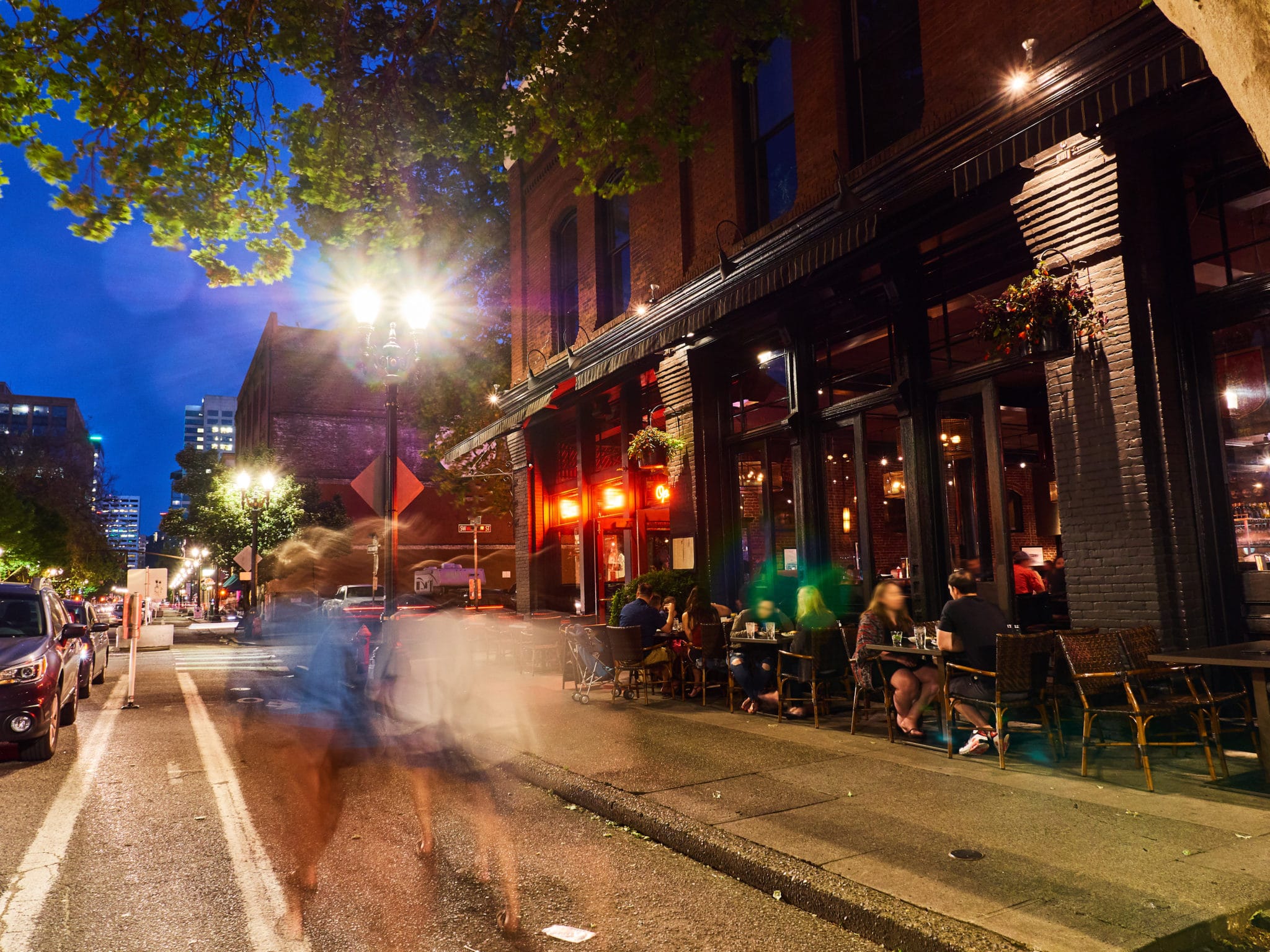
Mark Morgan, a retired Superintendent from Merseyside Police, runs a ground-breaking national initiative to make licensed premises safer.
Having led neighbourhood and response policing teams attending emergency calls in the vibrant and fast-paced City of Liverpool and surrounding areas, I know all too well how incidents can get out of hand quickly and escalate into injury or even fatalities.
I also know from first-hand experience during my 30-year policing career how police working effectively with key partner organisations and businesses can make a huge difference to deter and reduce crime and build safer communities.
This is why I’m excited by my latest role as Business Manager of Licensing Security & Vulnerability Initiative (Licensing SAVI), which brings together for the first time, all the guidance, advice and standards that licensees of pubs, bars, clubs, restaurants and hotels in England and Wales need to comply with the Licensing Act 2003 and promote the four Licensing Objectives. These are Prevention of Public Nuisance; Prevention of Crime and Disorder; Protection of Children from Harm; and Public Safety.
Comprehensive and consistent
Prior to Licensing SAVI, the information provided to licensees may have been subject to regional variations and different nuances and interpretations. What Licensing SAVI provides is the most comprehensive, single source of consistent information to meet the requirements of the ‘Responsible Authorities’ including Police and Council Licensing Teams.
Developed at the request of the Home Office by Police Crime Prevention Initiatives, a police organisation which works with Police Forces to deliver a range of crime prevention initiatives, Licensing SAVI is conveniently available as an online self-assessment.
It provides definitive information on effective management practices and operational security, including many safety measures that can be introduced quickly and at little or no cost, including some that licensed premises may not have considered before.
Completion of the self-assessment can lead to Accreditation and an Award with a Star-Rating for display to show a venue’s commitment to safety and security. Licensees can use their Star-Rating as a benchmark to further improve their safety and security – and achieve a higher Star-Rating Award year-on-year.
Being constantly updated to include the latest licensing legislation, changing patterns of criminal behaviour and industry best practices, it can become a key process in the running of a venue whether it’s a start-up business, established operator, single independent business or part of a large chain of venues.
With Licensing SAVI’s launch coinciding with the opening-up of the hospitality sector following the easing of COVID-19 restrictions, it can be used as part of a venue’s business recovery plan. In addition, it can be used for the training of staff who are returning after furlough and the recruitment of new staff to replace those who have left as well as being used as a template for on-going staff development.
Licensing SAVI is backed by the National Police Chiefs’ Council, which brings Police Forces together to help policing coordinate operations, reform, improve and provide value for money and Project Servator, a police-led vigilance scheme to deter terrorist attacks at crowded places. It has also gained support already from the NHS in certain parts the country for the way Licensing SAVI is independent of the alcohol drinks industry.
In my policing career, first with the Metropolitan Police and more recently with Merseyside, I know that an initiative like Licensing SAVI has been long overdue.
I believe it will reduce crime and demand on hard-pressed police forces, local authorities, NHS Ambulance Services and Accident & Emergency Departments. And I am sure it can make a positive difference to licensees too by helping their venue gain a reputation for safety and security within their local communities because that is likely to lead to a more successful and profitable business going forward.
About venue security
Since the creation of the first Police Force – the Metropolitan Police – in 1829, one of the fundamental principles of policing has been to prevent crime and disorder. Importantly, Licensing SAVI ticks the crime prevention box in a big way because it addresses critical issues such as responsible drinking, drugs misuse, violent behaviour and safeguarding vulnerable customers through to preventing opportunist theft and improving physical security.
The way COVID-19 restrictions were eased focused first on gardens, other outdoor seating areas and perhaps areas that hadn’t been fully utilised before. This is interesting because it’s led to licensees considering how management practices and operational security inside premises could be replicated or adapted to outside spaces to meet the huge, pent-up demand from customers whilst continuing to manage social distancing, the wearing of masks, QR code check-in and hygiene requirements.
Considerations here include how to manage outdoor noise, nuisance and boisterous behaviour possibly in close proximity to local communities, which have become accustomed to peace and quiet during COVID-19 lockdowns. Potential flashpoints could be longer than expected queues and more crowded smoking areas.
In addition, prompt collection outdoors of used glassware, bottles and cutlery and the fixing of outdoor furniture to prevent these items being used to harm should all be considered. Customer ejection and removal procedures from outside spaces, which may be next to a busy road, need to be planned carefully.
Whether customers are inside or outside, staff will need to know when the venue has reached capacity, such as by regular counting or by using devices like a mechanical clicker or an electronic scanning system. They need to be prepared to deal with heavy drinking or drug use and what to do when prohibited items like drugs or weapons are found and when customers need to be ejected – and by what pre-planned route.
In the most extreme cases, staff need to know what to do when emergency services are required, such as when someone is in need or urgent medical attention, a crime is committed and the scene needs to be preserved, or a fire breaks out on the premises. For example, how is a fire alarm raised, which fire exits should be used and where is the assembly point? Will staff know who is the qualified first-aider and the location and use of a defibrillator?
As closing time nears, is there a freephone telephone for customers to call for a taxi or notices near the exit displaying the times of local buses or trains? What is the dispersal plan for the peaceful departure of customers who leave at the same time? Then, there is final search of the premises to complement the search carried out at the start of the day.
Providing assistance
Staff wearing branded uniforms or displaying an ID badge – or both is important too. Clearly identifiable staff provide a valuable point of contact for customers who may feel vulnerable and need assistance.
Bar staff will have a better field of vision operating from raised floor areas behind bars or counters further assisted with strategically positioned, toughened or laminated mirrors to see what’s going on and increase the likelihood of enabling early intervention to avoid incidents and provide immediate support to vulnerable customers.
Other physical security considerations include specialist equipment like lighting, identification scanning systems, good quality safes and CCTV. For example, CCTV should record good quality images 24/7 with images stored for at least 28 days.
Then there are heavier and more structural products like internal and external doors, windows, shutters and grilles. For example, robust doors and grilles could help protect cash handling areas, computer rooms and CCTV monitoring areas.
I urge those working in licensed premises who may read this and consider it not relevant to their venue to think again – it’s far better to consider and mitigate risk than be unprepared and unable to effectively deal with any issues which may arise.
A combination of some of these measures, which are all covered in Licensing SAVI, will not only assist in protecting the building but also provide additional security within the premises to make venues safer for managers and staff, their customers and local communities.
To assist, licensees can obtain crime prevention advice from their local Crime Prevention Officers or Designing Out Crime Officers.

Email: [email protected]
Web: https://www.licensingsavi.com
This article was originally published in the July edition of Security Journal UK. To get your FREE digital copy, click here.